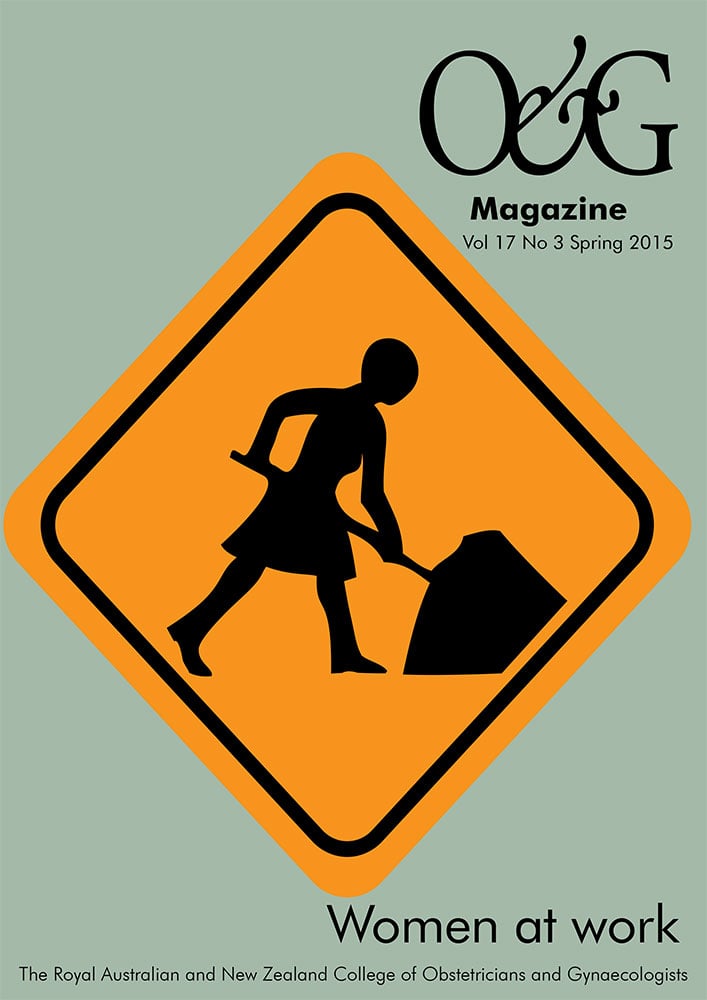Confessions of an obstetrician
Sitting in the antenatal clinic of a large public hospital, I look silently at the patient across the desk. Tears welling up, she is looking at me with pleading eyes. ‘I don’t want a vaginal delivery’, she says. ‘I don’t understand. Why I can’t just choose to have a caesarean section?’ I give her one of the usual explanations: it’s a public hospital, priority of spending, against policy, elective is a major procedure with major risks. Then she pulls out the final card: ‘What would you do?’
I smile and try to reassure her that everything will be fine, while inwardly the guilt rises, because I know what I would do; because I have made my choice – twice. I chose an elective caesarean section. It feels like the confession of the guilty. When I booked in for my obstetrician’s appointment I felt nervous. I really didn’t want a vaginal delivery. What was I going to say? In my carefree years and pre- pregnancy life, I believed in the rhetoric of no elective caesarean sections by choice. However, as time went on, night after night of suturing third- and fourth-degree tears, poor neonatal outcomes, crash emergency caesarean sections, I also came to believe that bad things just happen without it being anyone’s fault. Don’t we have to believe that as well, as obstetricians?
Two years of trying, four miscarriages and multiple investigations later we finally had our chance at a ‘miracle baby’. It was a one in 10 000 chance, one obstetrician told me. What risk was I prepared to take? Absolutely none. Would I have still chosen the same path if it had been an easier one? Almost certainly, yes. Luckily for me, my obstetrician asked me what would I like to do – vaginal delivery or caesarean section – and with relief I booked in my caesar date. As the pregnancy progressed, we held on to that date, each scan one step closer, hoping that each antenatal visit wasn’t bringing bad news. Finally, the call: ‘I think, taking into consideration everything, we should just bring the caesarean date forward – to today.’
I don’t regret my decision for one moment. It was a relief to see a healthy baby arrive safely and at the end of the day that was all I wanted. What did I learn from my caesarean section experience? The antiseptic solution used to prep for the spinal is really, really cold, not just cold. It’s the worst feeling in the world when your blood pressure drops to zero. The recovery was more painful than I expected, but not unmanageable. You do feel completely ridiculous trying to get up sideways to avoid using abdominal muscles. And, finally, I had no idea what was going on behind the screen at any point despite knowing every step back to front.
I still feel the excuses come when I’m asked why I had a caesarean section. I feel annoyed sometimes that I get questioned about my decision as it seems a personal and private question is not so private or personal when you’re an obstetrician. It feels like the question isn’t always about me and my decision, but about the wider community opinions for and against elective caesarean sections. Somehow my answer will justify an argument for one or other side.
Back to the antenatal clinic. I still believe caesarean section for maternal request should be declined. I still believe the public hospital just couldn’t handle the workload if it offered a caesarean section as a routine and that many women don’t limit family size and, as we know, the risks go up in this circumstance, but I’m a little more willing to find out why she wants it and try to find a solution behind the concerns and I am a little more likely to agree if I there seems to be a legitimate concern. Ultimately, I am pro-choice and feel a twinge of guilt and regret accompany my ‘no’ answer.






Leave a Reply